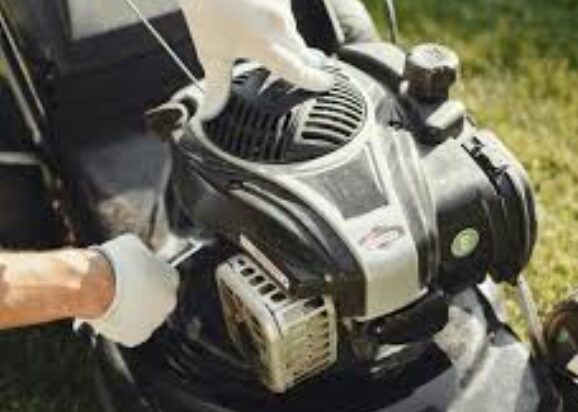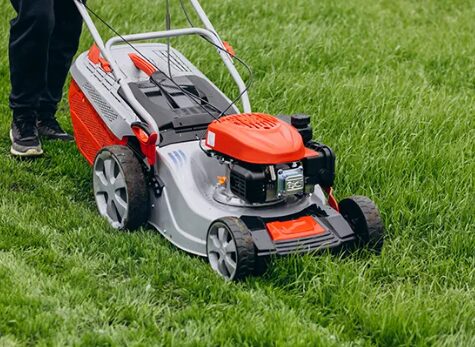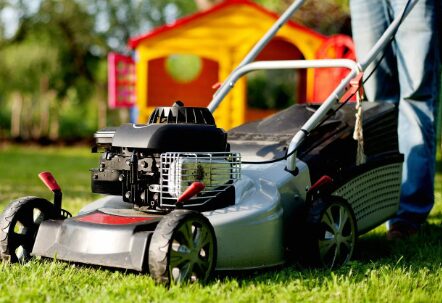When it comes to pure muscle and mowing down those thick, stubborn grasses, gas-powered lawn mowers usually hold the crown. They're like the heavyweight champions in the lawn care world, packing more torque and cutting power than their electric counterparts. If your lawn resembles a jungle, a gas mower might just be your best friend.
Torque Power and Performance
Electric mowers, including both corded and cordless versions, have seen some pretty impressive improvements in recent years. They’ve closed the gap quite a bit, but let's be real—some of the toughed lawns might still be a bit of a challenge for them. Still, if you're talking about regular maintenance of a moderately sized lawn, they can do a fine job without breaking much of a sweat.
So, what's the takeaway? If your lawn is the kind where grass shoots up like it’s racing against a clock, or if you’ve got dense patches that could hide jungle creatures, gas mowers might be the way to go. But for those with less demanding lawns or who prioritize quieter and more environmentally conscious options, electric could be just what you need.

The decision here boils down to understanding your lawn's unique challenges and what you value more—raw, unrestrained power or quieter, greener operation. Choose wisely, and you’ll have your lawn looking sharp in no time!
Ease of Use and Maintenance: Keeping Mowing Simple and Stress-Free
Electric mowers offer a big win in the ease-of-use department. With a simple push-button start, you're ready to roll—no fussing with a pull cord. That's a major plus if you want a hassle-free mowing experience.
On the flip side, gas mowers generally require a bit more elbow grease when it comes to maintenance. You'll need to stay on top of oil changes, air filter swaps, and spark plug inspections. Plus, dealing with a pull-start mechanism might not be the most enjoyable task when you just want to get the job done.
Consider storage and space. Electric mowers, especially the cordless ones, can be lighter and easier to store in smaller areas. Some even fold up neatly, making them perfect for tight garage spaces or sheds.

Manoeuvrability matters, too. If you often find yourself weaving around flowerbeds or garden gnomes, the lighter electric models might give you a bit more agility. Gas mowers can be bulkier, which might not be ideal if you're trying to navigate tight turns or narrow patches.
Ultimately, picking between gas and electric should be about what you find convenient and comfortable. Whether it's a smoother start to your mow or less maintenance hassle, weigh your options based on your maintenance style and storage situation.
Noise and Emissions: Eco-Friendly or Power Roar?
Electric mowers tick the box for those who prefer peace and quiet. They hum along smoothly, meaning you can mow early on Sunday mornings without becoming the neighbourhood villain. Plus, they’re emissions-free, scoring major points if you're big on keeping it green.
Conversely, gas mowers roar like lions. They're powerful, yes, but they don’t exactly whisper in operation. And let's not ignore their contribution to air pollution. If you're somebody who wants to keep the planet happy (and who doesn’t?), this is critical to consider.

For suburban dwellers or those with sound-sensitive neighbours, opting for an electric mower could maintain more than just the grass—it could keep the peace, too. Not to mention, contributing to a cleaner atmosphere is always a win.
Noise and emissions are about more than just decibels and exhaust. They reflect values and concern for the environment. When making your choice, think beyond the lawn—consider the community and planet impact as well.
Run Time and Range: The Marathon vs. The Sprint
Cordless electric mowers offer convenience that's hard to ignore, but their run time is limited by battery life, typically between 30 to 60 minutes. If your lawn is petite, a cordless might finish the job before running out of juice, but if you've got more ground to cover, be ready to recharge or swap batteries.
Corded electric mowers, on the other hand, can go as long as you’ve got an outlet (and a long enough cord). While they never run out of power, they do tie you down—literally. You’ll need to navigate wire management, which can become a hassle if your yard has trees or tight corners.

Gas mowers refuel quickly and can keep running as long as you’ve got a backup supply. This makes them a champ for sprawling lawns or more extended mowing sessions without the need to pause and power up.
Consider the size and layout of your lawn when deciding on your mower. Smaller spaces might fare well with corded or cordless models, while larger landscapes could demand the endurance of a gas mower. Understanding your yard’s needs ensures you're not interrupted mid-mow.
Upfront and Long-Term Costs: Investment Now or Later?
Electric mowers, especially the cordless kind, often come with a steeper price tag at the outset. This might give some pause, but here's the kicker—they tend to save you more in the long haul. No gas trips and minimal maintenance costs mean your wallet might breathe easier over time.
Gas mowers may flaunt a lower initial cost, making them appeal right off the bat. However, don’t overlook the ongoing expenses—fuel, maintenance parts, and tune-ups stack up, making them potentially pricier as years go by.

Consider what you’re comfortable with financially. If you’re looking at your mower as a long-term investment, the electric option might just pad your savings down the line.
Think about how often you mow, and the typical costs involved in upkeep. For those who mow often or have a heavy-duty usage, electric might prove more economical across its lifetime.
Making sense of your finances while choosing a mower ensures you pick one that doesn’t only perform well but also aligns with your financial comfort.



Recent Comments